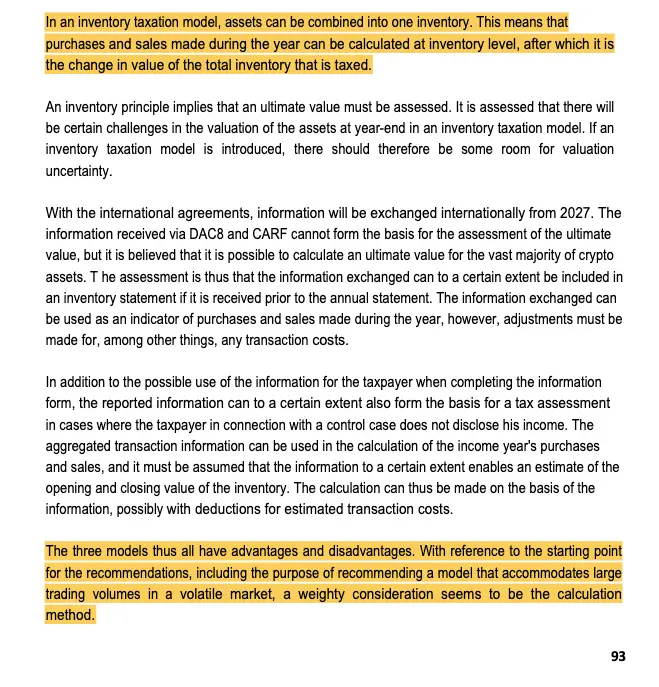Crypto tax rules face major changes in Denmark. The Tax Law Council has proposed a 42% tax on unrealized cryptocurrency gains. This 2026 crypto bill marks a shift toward inventory taxation for all digital assets held since 2009. The change targets Denmark’s 300,000 crypto holders.
Also Read: Visa and PayPal Boost Stablecoin Adoption as Chainlink, Swift Hit Milestones
Examining Denmark’s 2026 Crypto Bill on Taxing Unrealized Gains

Understanding Inventory Taxation

The Tax Law Council explains:
“The so-called inventory taxation occurs as capital income and in return implies that the taxation occurs continuously, regardless of whether crypto-assets have been sold.”
The model works simply: “In an inventory taxation model, assets can be combined into one inventory. This means that purchases and sales made during the year can be calculated at inventory level, after which it is the change in value of the total inventory that is taxed.”
Reform Goals
Denmark’s tax minister, Rasmus Stoklund, states the purpose clearly: “Throughout recent years, there have been examples of Danes who have invested in crypto-assets being heavily taxed. The council’s recommendations can be a way to ensure more reasonable taxation of crypto investors’ gains and losses.”
Also Read: Shiba Inu Forecasted To See Explosive 330% Growth: How High Could It Go?
Implementation Plans
The proposal notes: “The three models thus all have advantages and disadvantages. With reference to the starting point for the recommendations, including the purpose of recommending a model that accommodates large trading volumes in a volatile market, a weighty consideration seems to be the calculation method.”
Stoklund adds: “It is my opinion that there is a need for clearer and more appropriate rules in the area. That is why I am also looking forward to putting forward a bill and discussing it with the parties in the Folketing.”
Also Read: Apple (APPL) Q4 Earning Report: Should You Buy It As Stock Targets $300?
Global Reporting
By 2027, Denmark will share crypto investor data with other countries. All crypto platforms must report user transactions. This system helps track yearly portfolio values. Tax authorities will assess both gains and losses across different cryptocurrencies.






